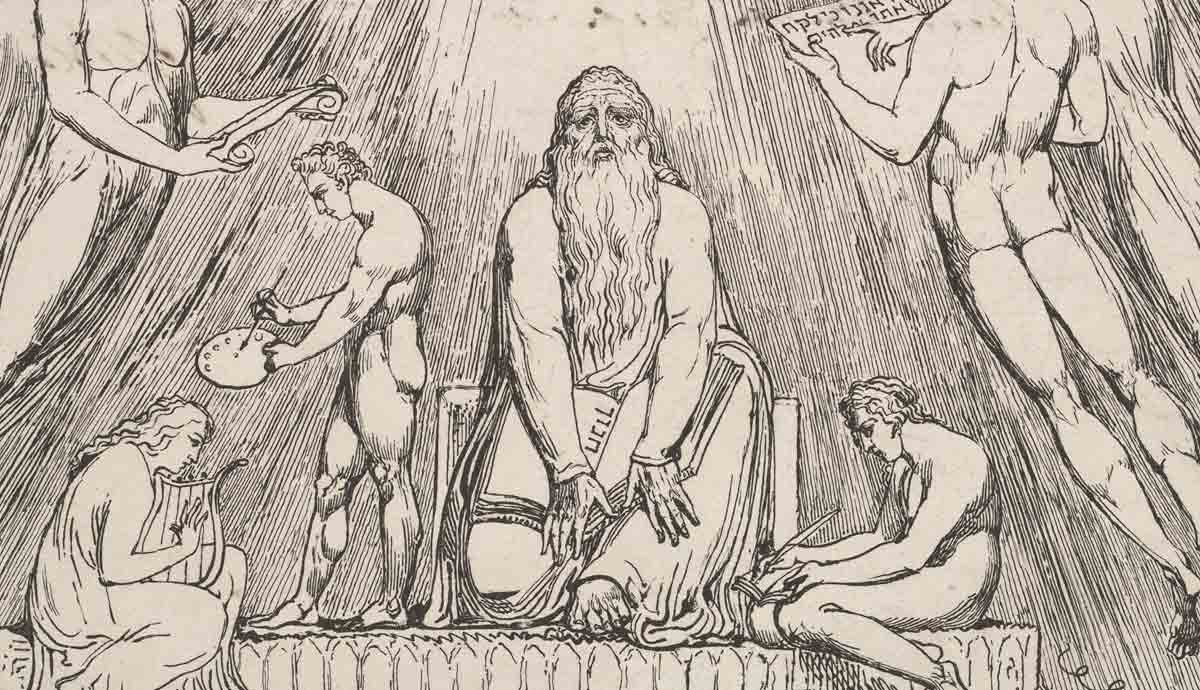
The Bible is the religious text used by Christians. It is a collection of oral traditions, eyewitness accounts, popular sayings, songs, and more. These different texts are compiled into 66 books, with 39 books in the Old Testament and 27 in the New Testament. The Old Testament was written before the birth of Christ, and the New Testament after. Therefore, the Bible was not written by a single author, in a single style, or in a single time. One of the many genres of the Bible is called “wisdom literature.” What is it about?
The Big Story of the Bible

If the overarching narrative of the Bible is likened to a painting, wisdom literature is one color in that painting. A single stroke of the paint might not make a lot of sense when interpreted apart from the whole canvas. In order to understand the role that wisdom literature plays in the Bible, we need to start by looking at the big story of the Bible. It has been said that the Bible is more like a library than a book since it holds a collection of many different books.
However, scholars of the Bible have identified that the Bible tells a single story. It is a story of love, betrayal, and rescue. There are parts of this story that seem to repeat like bars in music. “In broadest terms, the Bible’s plot can be summarized in four words: creation, fall, redemption, and restoration,” James M. Hamilton Jr noted. In its simplest form, in Genesis, it is a story of a creator God who walks closely with the people he made (love). But the people turn their backs on him and choose themselves instead (betrayal). God clothes them to cover their shame (rescue).
This same story is echoed throughout the whole Bible. The ultimate example is found when God promised to send a savior to build a bridge so that people would no longer have to be separated from him. When Jesus Christ exhaled his final breath, the curtain in the Temple that kept people from entering the divine presence of God tore from the top down (Matthew 27:51).
The Genre of Wisdom Literature in the Bible

We have discovered that wisdom literature is a single color in the painting that is the Bible. Some of the other genres in the Bible include Prophecy, Letters, Gospels, History, Poetry, and Law. Wisdom literature can be found in the following books in the Bible: Proverbs, Job, Ecclesiastes, Song of Songs (and some scholars include Psalms). Of the multiple genres in the Bible, wisdom literature gives the most practical guidance about how to live.
It boasts collections of wise sayings and allegories that give insight into existential topics like living a meaningful life, knowing good from bad, and discovering purpose. The wisdom literature in the Bible states that a deep reverence for and relationship with God is the beginning of all wisdom (Proverbs 9:10). Psalm 16:11 says, “You make known to me the path of life.” This reveals a foundational belief present in all wisdom literature in the Bible, stating there are two ways to live or two paths to walk on. One leads to destruction, and the other leads to success. The wisdom literature in the Bible describes how to live the way that the creator God of the Bible (Yahweh) intended.
The books of Proverbs, Song of Songs (also known as Song of Solomon), and Psalms are more optimistic and speak of this wisdom as something that a person can hold onto, while the books of Job and Ecclesiastes are far more pessimistic in nature. Ecclesiastes 1 famously says: “Utterly meaningless! Everything is meaningless. What do people gain from all their labors at which they toil under the sun? Generations come and generations go, but the earth remains forever. The sun rises and the sun sets, and hurries back to where it rises.”
Is Wisdom Important in the Bible?

Wisdom is not only important in scripture; it is seen as the point. Proverbs 4:7-8 personifies wisdom as a woman: “The beginning of wisdom is this: Get wisdom. Though it cost all you have, get understanding. Cherish her, and she will exalt you; embrace her, and she will honor you.” Throughout the whole Bible, wisdom is seen as something that comes from God and that people can tap into (or download) when they seek it wholeheartedly.
When we look at the big story of the Bible again and turn our attention back to the Garden of Eden in Genesis, it is astounding to realize what made the people turn from God. The apple that Eve so infamously picked came from the Tree of Knowledge (of Good and Evil). With the Great Flood, Noah received divine insight and specific instructions from God for how to build an Ark for survival. In this same way, wisdom can be found at the center of almost every story in the Bible.
The giving of wisdom is most prominent in the life story of an Israelite King in the 10th century, Solomon. According to the historical book of 1 Kings, God appeared to Solomon in a dream and told him he could ask for anything. Solomon asked for wisdom to lead the people well. His request pleased God, and “God gave Solomon wisdom very great insight, and a breadth of understanding as measureless as the sand on the seashore. From all nations people came to listen to Solomon’s wisdom, sent by all the kings of the world, who had heard of his wisdom” (vv.29,34). Some people believe Solomon to have authored parts of the wisdom literature books of Ecclesiastes, Song of Songs, and Proverbs.
How to Read Wisdom Literature

The wisdom literature in the Bible plays the role of showing Godly wisdom to the reader. “But some of it makes no sense!” I can hear you saying. Yes. Some of the sayings and so-called truths in these wisdom books leave us feeling more confused than before we read them. This is true about the wisdom literature books in the Bible: They are Rubik’s cubes, waiting to be solved. Wisdom is not something that is often handed to us. The books of Job and Ecclesiastes make it clear that wisdom comes by wrestling, asking the hard questions, and going deeper than you’re comfortable with.
If you are wondering how to read wisdom literature, a good place to start is with the books of Ecclesiastes or Proverbs. Proverbs is the simplest one—but do not try to read a whole chapter in a sitting! The Bible’s book of Proverbs is not organized according to theme, so the separate sayings do not follow each other logically. A far better idea is to choose a theme and then look up everything the Book of Proverbs has to say about that topic. Such an approach will lead you in the right direction.
What Is the Purpose of Wisdom Literature in the Bible?

Take the book Song of Songs, for example. One interpretation holds that it is a metaphor for the relationship between God (the man) and humanity (the woman). Like a Shakespeare play, this book is carefully crafted to depict the pursuit and connection of a love story. Or we can consider the book of Job, which shows how someone can lose everything and still find hope in God. The story of Job also shows that the Bible doesn’t shy away from difficult topics. This hard and critical look at life is echoed in the book of Ecclesiastes, asking: What is the point of all of this? Proverbs is a collection of sayings that answer this question to some degree.
According to M. Gilbert, “Wisdom thinking is to be found in all ages and among all peoples… The Bible did not escape this trend.” Communities of people have always embraced certain principles for living and turned them into catchy sayings. These sayings often circulated as oral traditions or campfire stories before they were penned down by a writer somewhere. Therefore, we can find wisdom from more than one source. Life has always been complicated and problematic, causing wise people to seek out methods of success and a pathway to peace.
This is essentially the purpose of wisdom literature in the Bible as well. The purpose of wisdom literature is to teach the reader something about living God’s way. Remember, the big story of the Bible is about love, betrayal, and rescue. Wisdom literature plays into the rescue aspect by offering a recipe for life.










